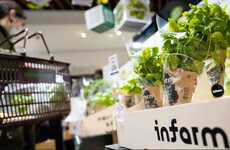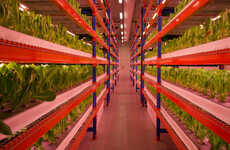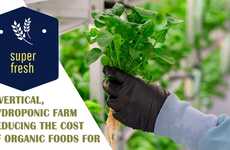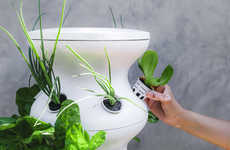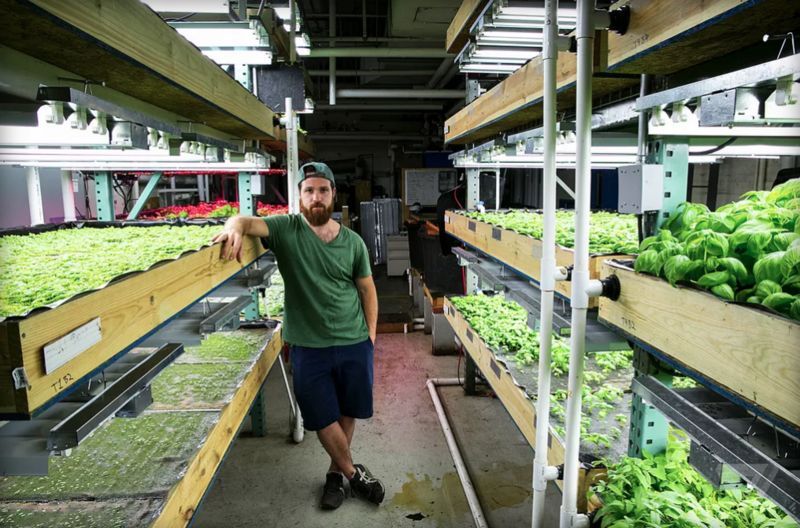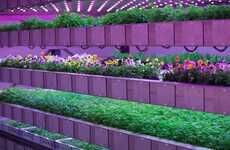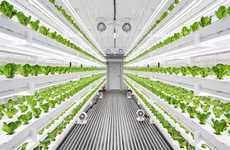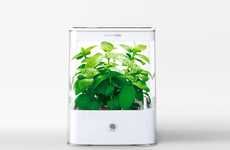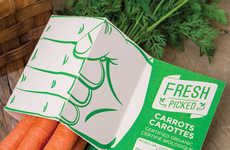
Verticulture Grows Basil in a Way that May be the Future
Meghan Young — June 15, 2016 — Eco
Verticulture is one of three aquaponic farms based in Brooklyn, New York. Yet besides having a common goal and city, the three differ quite a bit. Verticulture focuses on growing Genovese and Thai basil -- at least for now -- by using tilapia. Essentially, the poop generated by the fish fertilize the soil in order to produce quality product.
Founded by Miles Crettien, Peter Spartos and Ryan Morningstar, Verticulture is able to produce 30 to 40 pounds of basil weekly that are then sold to local retailers such as Foragers in Chelsea and Dumbo, the Food Coop in Park Slope and The Green Grape in Clinton Hill. Although still in its Beta stage, Verticulture is promising. Crettien says, "I believe strongly in the ecological design. We can build this anywhere. We can build it in the desert. We can build it in Antarctica."
Founded by Miles Crettien, Peter Spartos and Ryan Morningstar, Verticulture is able to produce 30 to 40 pounds of basil weekly that are then sold to local retailers such as Foragers in Chelsea and Dumbo, the Food Coop in Park Slope and The Green Grape in Clinton Hill. Although still in its Beta stage, Verticulture is promising. Crettien says, "I believe strongly in the ecological design. We can build this anywhere. We can build it in the desert. We can build it in Antarctica."
Trend Themes
1. Aquaponicurbanfarming - The combination of aquaculture and hydroponic farming opens up disruptive innovation opportunities for sustainable urban farming.
2. Verticalfarming - The use of stacked layers of cultivation in urban areas opens up disruptive innovation opportunities for maximizing land use and increasing crop production.
3. Sustainablefarming - The increasing demand for locally sourced, sustainable food production opens up disruptive innovation opportunities for new and innovative farming practices.
Industry Implications
1. Agriculture - The incorporation of aquaponics and vertical farming in traditional agriculture can help increase crop yield and food production sustainably.
2. Food Retail - The increasing demand for locally sourced, sustainable food products creates disruptive innovation opportunities in food retail, allowing for small-scale producers to sell directly to consumers.
3. Sustainability Consulting - The trend towards sustainable and eco-friendly farming practices creates new disruptive innovation opportunities for sustainability consultants to provide guidance and support.
6.7
Score
Popularity
Activity
Freshness

